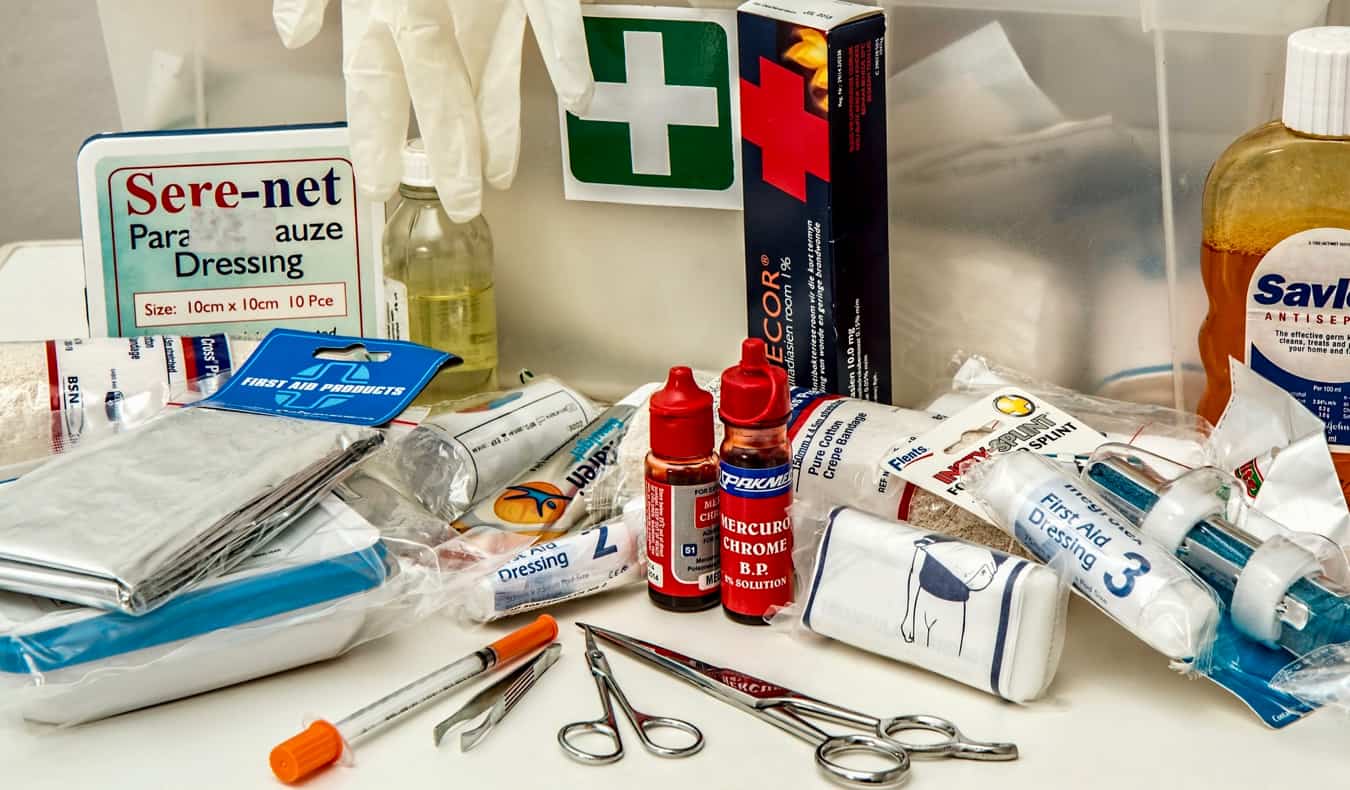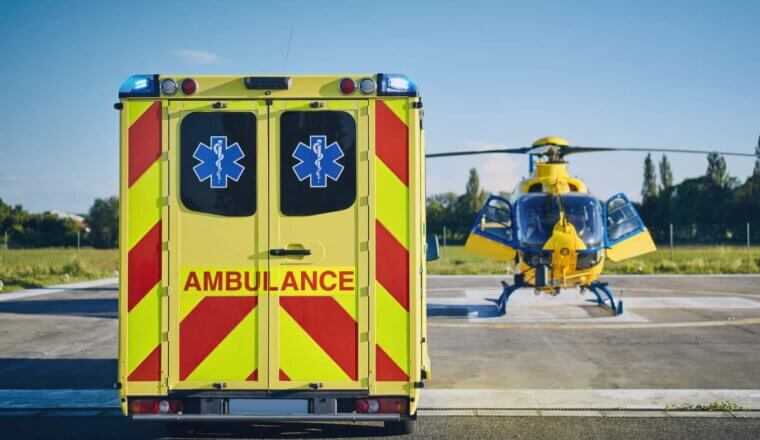
Last Updated: 6/2/2023 | June 6th, 2023
Getting sick is a part of everyday life, and being on the road doesn’t exempt you from that fact — especially because travel exposes you to a whole new range of bugs, parasites, and foreign environments.
In short, the longer you spend on the road the more likely it is you will get sick.
Fortunately, there are lots of things you can do to reduce risk and keep yourself as healthy as possible while you travel.
Here are 11 simple tips you can use to ensure you stay safe and healthy on the road:
1. Buy Travel Insurance
I never leave home without travel insurance. It provides peace of mind while ensuring that, if something goes wrong, I won’t be on the hook for it.
Over the years, I’ve popped my eardrum, needed emergency doctor appointments, and even got knifed.
You don’t want to have to deal with these situations alone — and you definitely don’t want to have to pay for them out of pocket.
I always buy travel insurance before I leave home. You should too.
To me, SafetyWing is the best overall travel insurance company out there.
You can use the booking widget below to get a quote:
2. Wash Your Hands (And Wear a Mask)
If there is anything COVID taught us it’s that washing your hands is WAY more important than people thought. Half of all food-borne illnesses are due to unwashed hands and upwards of 15% of men don’t even wash their hands after using the bathroom. Gross, right?!
I know this sounds basic, but the simple act of washing your hands is one of the absolute best ways to keep yourself free from illnesses such as diarrhea, food poisoning, the flu, hepatitis A, and COVID-19.
While soap and water (for twenty seconds) is always the best option, hand sanitizer will work in a pinch too.
And, if you’re not feeling well, be sure to wear a mask when out in public. This practice has been common in Asia for years and helps to keep things like the flu from spreading. COVID-19 made it a global thing and, while it is super helpful in stopping the spread COVID, it’s also even helpful for other viruses. So wear a mask if you’re feeling sick or traveling during cold/flu season.
After all, you’ve seen how people behave on planes and public transportation! People are a bit gross. Basic hygiene on your part will keep you healthy!
3. Drink Bottled Water
In many parts of the world, tap water is not suitable for consumption. While the locals might be able to drink it without issue, you shouldn’t try.
While bottled water is a good fall back, it’s incredibly wasteful. I suggest you bring a filter such as Lifestraw or SteriPen. Both of these will ensure that 99.9% of bacteria and parasites are removed from your water.
4. Be Mindful of Food Contamination
Nobody wants diarrhea or gastrointestinal problems on their trip. To avoid common contaminants such as E. coli, Salmonella, Giardia, and other nasties, always make sure the food you’re eating is fresh, hot, and properly cooked.
As a general rule, stick to places that are full of locals. If the locals keep eating there, chances are the food is safe.
When in doubt, keep an eye out for signs of good hygiene practice, such as glove-wearing, a separate person handling the money, and regular handwashing.
You may want to avoid the following:
- Salads that may have been prepared in local untreated water
- Raw fruit and vegetables that you haven’t peeled or skinned yourself (if you have, they are generally fine)
- Food that has been left out for extended periods
- Buffets
You probably aren’t going to avoid a bit of stomach upset completely on your travels — especially if you are traveling long term — but if you are aware of good food hygiene practices and follow them as much as possible then you can at the very least minimize the risk of becoming ill.
5. Don’t Be Afraid of Having Familiar Food
As a foodie, eating local food and delving into the local cuisine is one of my favorite things about traveling. It’s something you should never miss out on. That said, a degree of common sense is needed too.
Jumping straight into a diet of spicy curries or predominantly red meat is a good way to ensure some form of gastrointestinal upset if your stomach isn’t used to it.
Food intolerances happen when your gut can’t properly digest the food you’ve eaten, which can irritate the digestive tract and lead to stomach pain, cramps, gas, diarrhea, vomiting, and heartburn.
Don’t worry — this generally isn’t serious and will pass relatively quickly. The trick to trying new foods and new cuisine is to mix it up a little bit.
If you have a sensitive stomach, take it easy at first, and don’t be afraid of eating familiar food from time to time.
6. Stay Active
One of the best ways to stay fit and healthy and fight off unwanted infections is exercise. The benefits of exercise are well known and well documented: it improves your overall health and well-being and strengthens your immune system, which makes you less susceptible to illness.
And if you do get sick, your body is better able to fight off the infection and more quickly get you back on your feet. It isn’t foolproof, of course, because fit people still get sick, but in general the fitter you are, the better your body will be at shrugging off that annoying bug or illness.
If you aren’t active or fit before you start traveling, use it as an excuse to start! Go on a jungle trek, go hiking into the countryside or up a mountain, swim in the sea, go for a jog — whatever tickles your fancy as long as it gets you a little out of breath.
Here are some ways to exercise when you travel!
7. Protect Yourself Against the Sun
Sunburn can seriously ruin a good travel experience! I got sunburned years ago in Thailand after snorkeling for too long and forgetting to reapply sunscreen. It is not an experience I want to repeat!
Dermatologists currently recommend that you use a minimum of SPF 30.
Protecting yourself from the sun goes beyond getting bad sunburn though. You should also stay well hydrated if you are traveling in a country or region with a hot or tropical climate, as well as cover up with loose clothing and even a hat or scarf.
If you don’t, then dehydration can set in very quickly, and that can lead to more serious conditions such as exposure, heat exhaustion, and heatstroke, which if left unattended can become a medical emergency.
It happens a lot more easily than many people think so be sensible, use sunscreen, cover up, and stay hydrated.
8. Stay Vaccinated
Not all vaccinations are required for every individual for every trip, and a lot depends on what vaccinations you have already, what country or region you are visiting, and individual factors, such as your personal medical history, how long you will be traveling, and what you will be doing.
This is why it is essential that you get one-on-one personal advice from your local travel clinic, nurse specialist, or physician before you travel.
To give you a basic understanding of the types of vaccinations you will need, however, they are often broken up into three distinct categories:
- Routine vaccinations – These are what most people get throughout their childhood/early adult life. These generally include diphtheria, tetanus, and pertussis (DTP); hepatitis B; hepatitis A (for at-risk groups); measles, mumps, and rubella (MMR); and HPV (to prevent cervical precancers and cancers). It is important that you are fully up to date with all of your routine vaccinations, including boosters, if you plan to travel.
- Recommended vaccinations – These include all the vaccines that aren’t included in the routine schedule of your own country and are specific to travel to any given destination. These can include vaccinations rabies, Japanese encephalitis, cholera, typhus, and others.
- Required vaccinations – These refer to vaccinations for yellow fever, meningococcal disease, and polio. Many countries where yellow fever is present will require you to have proof of vaccination before you are allowed in and, if you are heading anywhere else after traveling to a country where these diseases are present, you will need to show proof of vaccination — known as an international certificate of vaccination or prophylaxis (ICVP) (i.e. a little yellow book) — before entry.
9. Watch for Mosquitoes!
Mosquito bites are an absolute nightmare for any traveler. At best, they will simply annoy you. At worst, they can transmit a whole variety of diseases like yellow fever, dengue, Japanese encephalitis, and malaria.
Mosquitoes are a problem in many parts of the world, but the Centers for Disease Control and Prevention (CDC) and the World Health Organization sites are excellent places to find out where there are outbreaks of diseases such as dengue or malaria.
Even if you are in a low- to no-risk area, it is still a good idea to prevent mosquitoes from biting you. Here are some ways to protect yourself:
- Air-conditioned rooms are great for minimizing mosquito bites, as they are often better sealed and less likely to let them in.
- Cover up. Wearing the right clothing is essential. Wear light, loose cotton clothing that covers most of your skin, especially around peak exposure times and places, for example, near bodies of water or at twilight or after dark, the peak time for malaria-carrying mosquitoes to feed.
- Sleep under permethrin-coated nets where necessary.
- Use anti-mosquito coils and plug-in devices where appropriate.
- Always apply a good dose of 30–50% DEET spray and reapply it regularly.
It is important to remember that none of these methods is completely foolproof. You can do everything right and still get bitten. But at least this stuff reduces your risk!
10. Take Antimalarials if Necessary
Antimalarials are needed when you visit certain areas of the world where you’ll be at a high risk of contracting malaria. If you are visiting an area that is a low to no risk, however, then antimalarials probably aren’t necessary.
Now, knowing when they are necessary and when they are not is a different matter, and a lot of different factors have to be taken into consideration. These factors include the following:
- The level of risk in your destination
- The time of year you are traveling
- Whether there are any current outbreaks
- How long you are staying
- What you will be doing
- Past experience with antimalarial drugs
Talk to your doctor or a travel nurse to learn more about whether or not antimalarials are right for you and your trip. Like all medications, they do have side-effects so you’ll need to weigh those in your decision as well.
11. Make an Appointment with a Travel Health Professional
It is important that you discuss your plans with a health professional well before you head out into the world. Don’t leave it to the last minute either as last-minute vaccinations and medications might not be possible.
Generally, try to book your appointment 6-8 weeks before your trip. That will give you plenty of time to figure out what you need, do your research, and get any shots or medicine you will need.
12. Pack a First Aid Kit
Even if nothing disastrous happens on your trip (and hopefully it won’t), minor things can and occasionally do go wrong on any trip, and taking a well-stocked kit with you will help you prepare for travel’s little bumps and scrapes. Band-Aids, small scissors, and OTC medications like Tylenol are handy to have on hand no matter where you are in the world.
You can either purchase a pre-made first aid kit or assemble your own. Check out this guest post with Mike Huxley, a registered nurse, where he shares his tips on the essentials to pack in a travel first aid kit.
These simple steps will dramatically reduce your risk of getting ill abroad. Before you set off on your next trip, take a moment to think about your health and prepare accordingly. That way, you’ll be able to enjoy your trip with peace of mind.
Remember that these are general health tips only; they are not a replacement for a consultation with your travel health nurse or physician. When in doubt, talk to a professional. It’s always better to be safe than sorry!
Disclaimer: I am not a medical professional. This is just my non-medical advice on how I approach help on the road. Before traveling, seek medical advice on what to do, especially in regards to vaccines and medication. This post does not constitute professional medical advice!
Book Your Trip: Logistical Tips and Tricks
Book Your Flight
Find a cheap flight by using Skyscanner. It’s my favorite search engine because it searches websites and airlines around the globe so you always know no stone is being left unturned.
Book Your Accommodation
You can book your hostel with Hostelworld. If you want to stay somewhere other than a hostel, use Booking.com as it consistently returns the cheapest rates for guesthouses and hotels.
Don’t Forget Travel Insurance
Travel insurance will protect you against illness, injury, theft, and cancellations. It’s comprehensive protection in case anything goes wrong. I never go on a trip without it as I’ve had to use it many times in the past. My favorite companies that offer the best service and value are:
- SafetyWing (best for everyone)
- Insure My Trip (for those 70 and over)
- Medjet (for additional evacuation coverage)
Want to Travel for Free?
Travel credit cards allow you to earn points that can be redeemed for free flights and accommodation — all without any extra spending. Check out my guide to picking the right card and my current favorites to get started and see the latest best deals.
Need Help Finding Activities for Your Trip?
Get Your Guide is a huge online marketplace where you can find cool walking tours, fun excursions, skip-the-line tickets, private guides, and more.
Ready to Book Your Trip?
Check out my resource page for the best companies to use when you travel. I list all the ones I use when I travel. They are the best in class and you can’t go wrong using them on your trip.


